Submitted by WA Contents
MVRDV turns old shipping container into a clubhouse for refugees
Netherlands Architecture News - Nov 15, 2024 - 15:38 2992 views
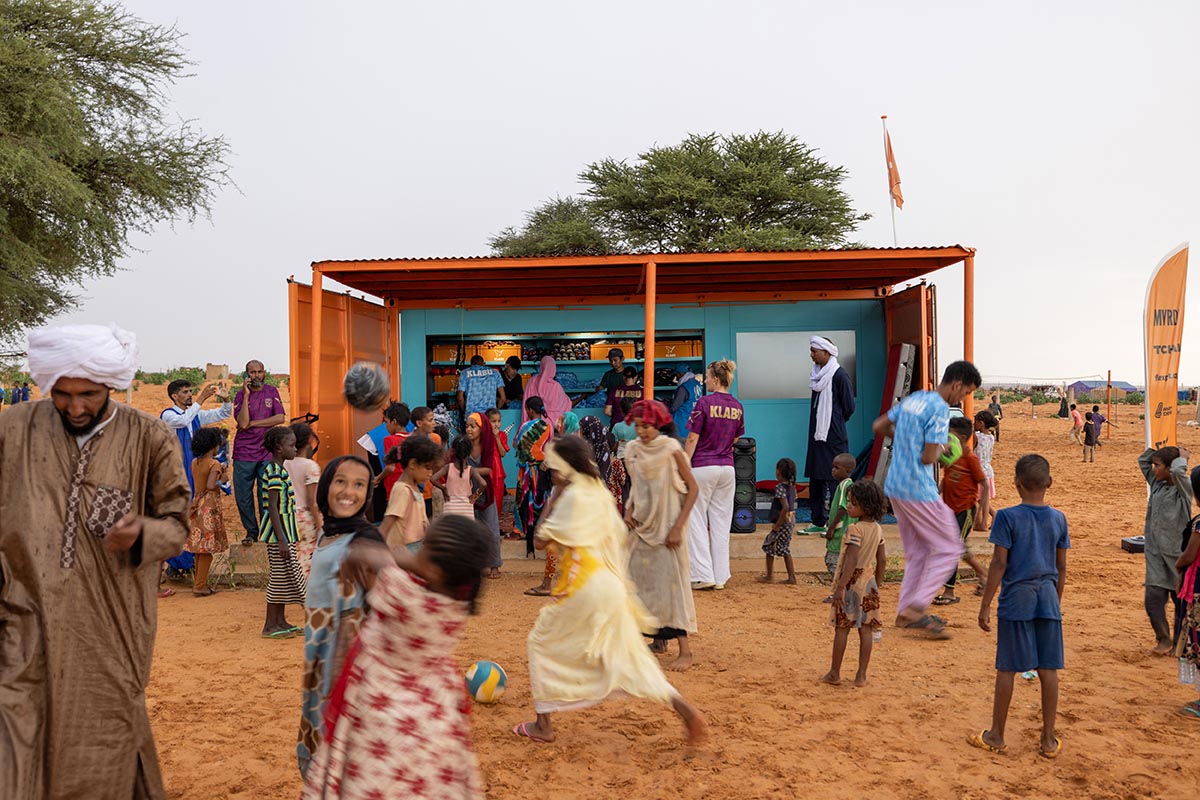
MVRDV has turned an old shipping container into a modular, multi-functional clubhouse to use the power of sport to aid refugees.
Named KLABU Clubhouse, the project was developed for KLABU, which means "club" in Swahili. KLABU is an Amsterdam-based social enterprise that uses the happiness, pride, and hope of sports to help refugees start over.
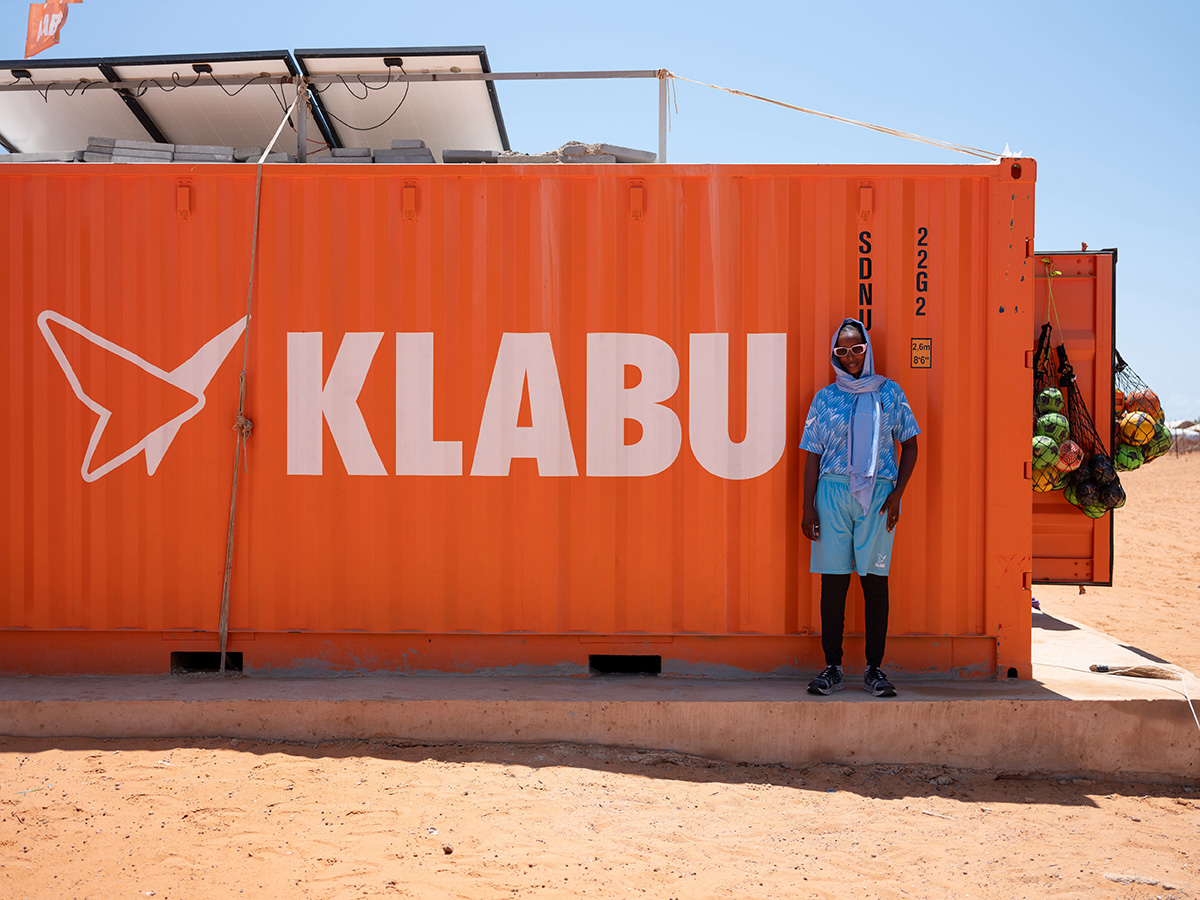
KLABU constructs clubhouses in cities, settlements, and refugee camps that offer Wi-Fi, TV broadcasts, sports equipment, and activities, fostering a friendly and inclusive community.
The new clubhouse is located inside a shipping container and contributes to KLABU's mission to support refugees through the power of sport.
The clubhouse's creative and easily replicable design offers refugees a versatile, secure, and entertaining area to socialize and have fun.
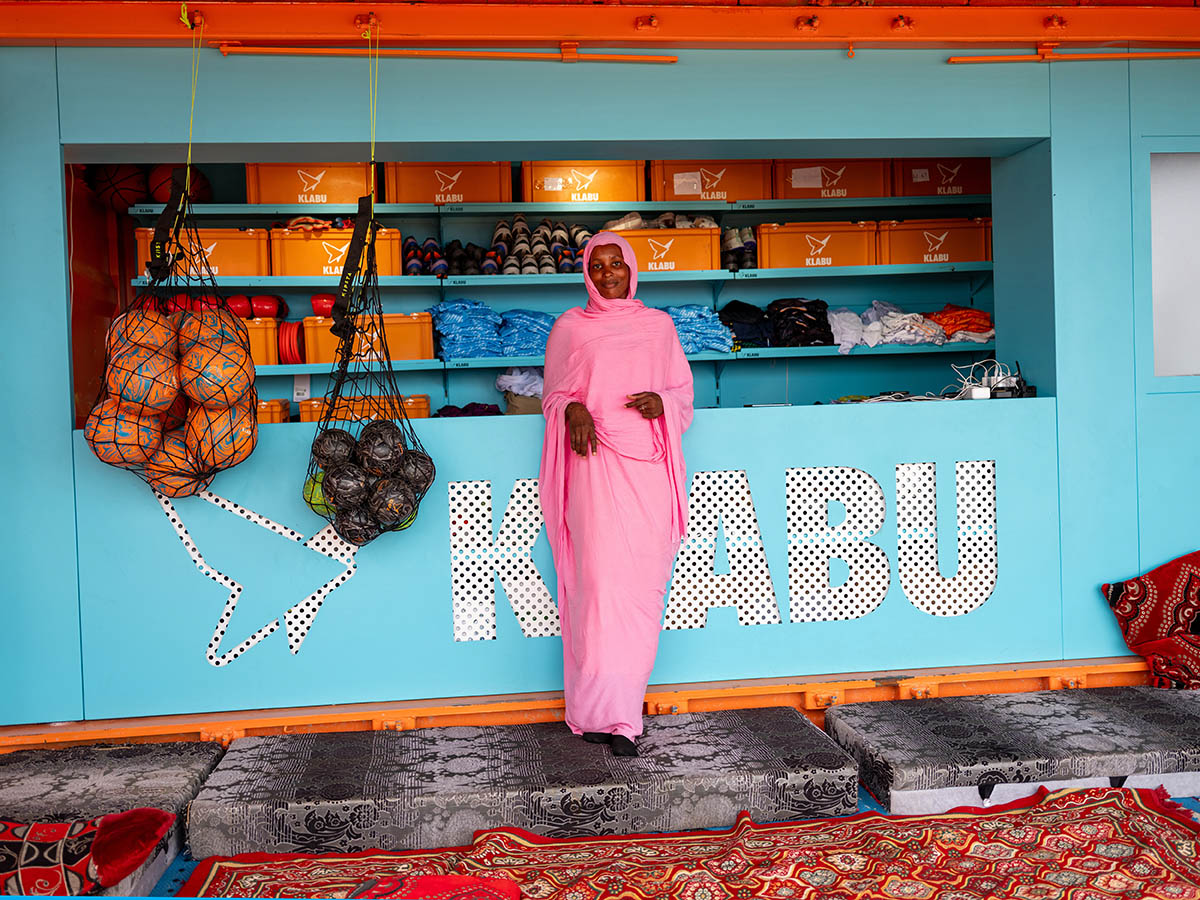
Currently in its third iteration, the KLABU clubhouse design will soon be installed at the Azraq refugee camp in Jordan, which houses about 41,000 Syrian refugees.
Following this are clubhouses created by MVRDV that are used in the M'bera refugee camp in Mauritania, which offers safety to 100,000 Malian refugees, and the Waraotuma a Tuaranoko shelter in Boa Vista, Brazil, which aids indigenous Venezuelans who were forced to leave their homeland.
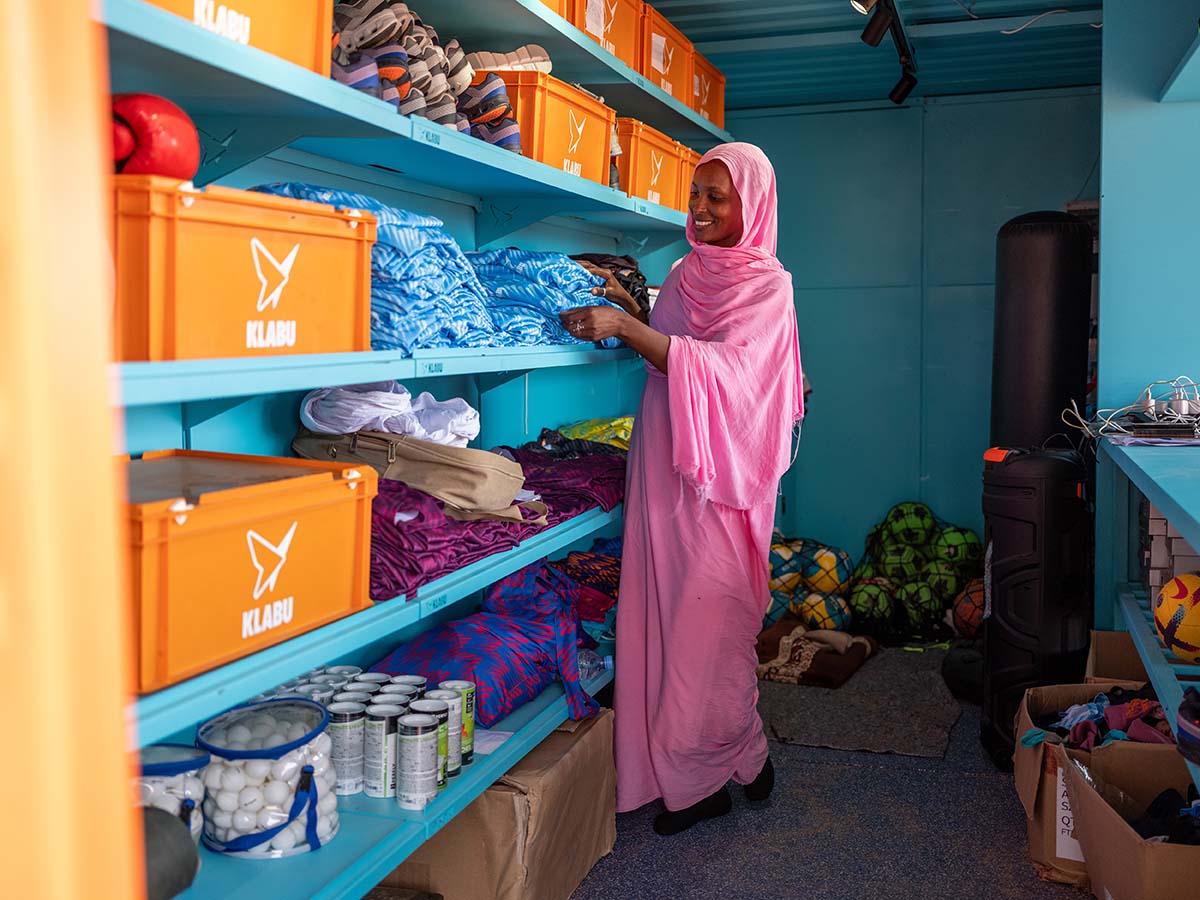
Every version of the clubhouse is created in consultation with KLABU, TCHAI (the fabrication and fitout firm), and the camp clubhouse managers, taking into account their input.
"Sometimes the most powerful design comes from the simplest concept. Taking a shipping container, ordinarily the most mundane, everyday object, and transforming it into a bright, multi-functional clubhouse providing sports opportunities for refugees has been a deeply rewarding challenge," said Gideon Maasland, director at MVRDV.
"For all of us at MVRDV, to have played a part in enhancing the meaningful impact KLABU has on vulnerable communities is humbling. We will continue to work with KLABU on new iterations of the clubhouse to help support the needs of refugees," Maasland added.
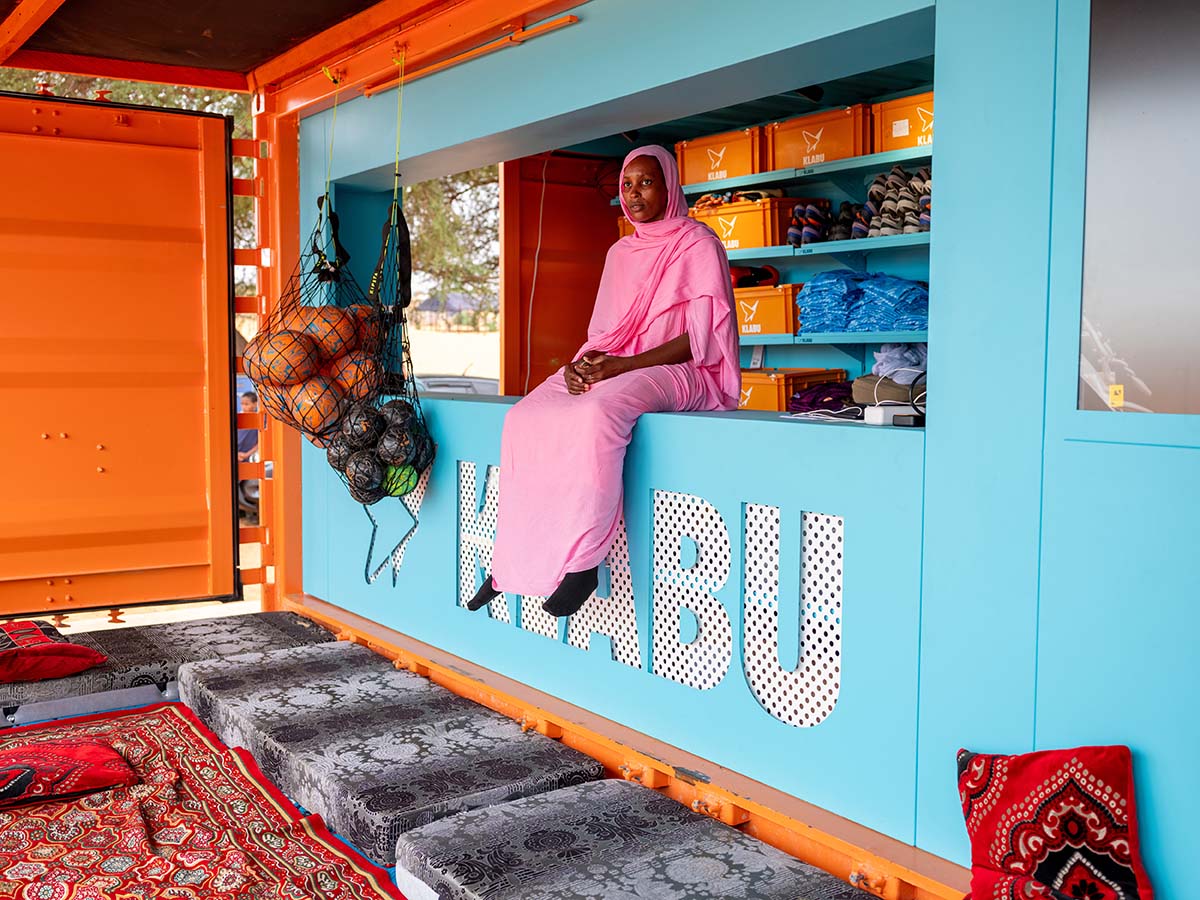
A modified ISO dry shipping container, selected for its robustness, security, and portability, serves as the foundation for the clubhouse. KLABU can create a "flat-packed" sports clubhouse by utilizing a shipping container as the foundation, which allows them to deliver the required sports equipment and the actual clubhouse structure all at once.
The clubhouse, which can be reused in the same or different locations, offers a scalable model for sports opportunities that can be readily duplicated to support the more than 120 million people who have been forcibly displaced worldwide.

The clubhouse turns into a vibrant and upbeat hub in the camps, giving refugees easy and secure access to a range of the most well-liked sports, fostering social, athletic, and interpersonal ties in these marginalized communities.
The KLABU logo is laser-cut into the shipping container's striking orange exterior, giving it a recognizable and hospitable appearance. Compact, modular, and adaptable interior installations contrast with the exterior's orange hue in a sky-blue interior.
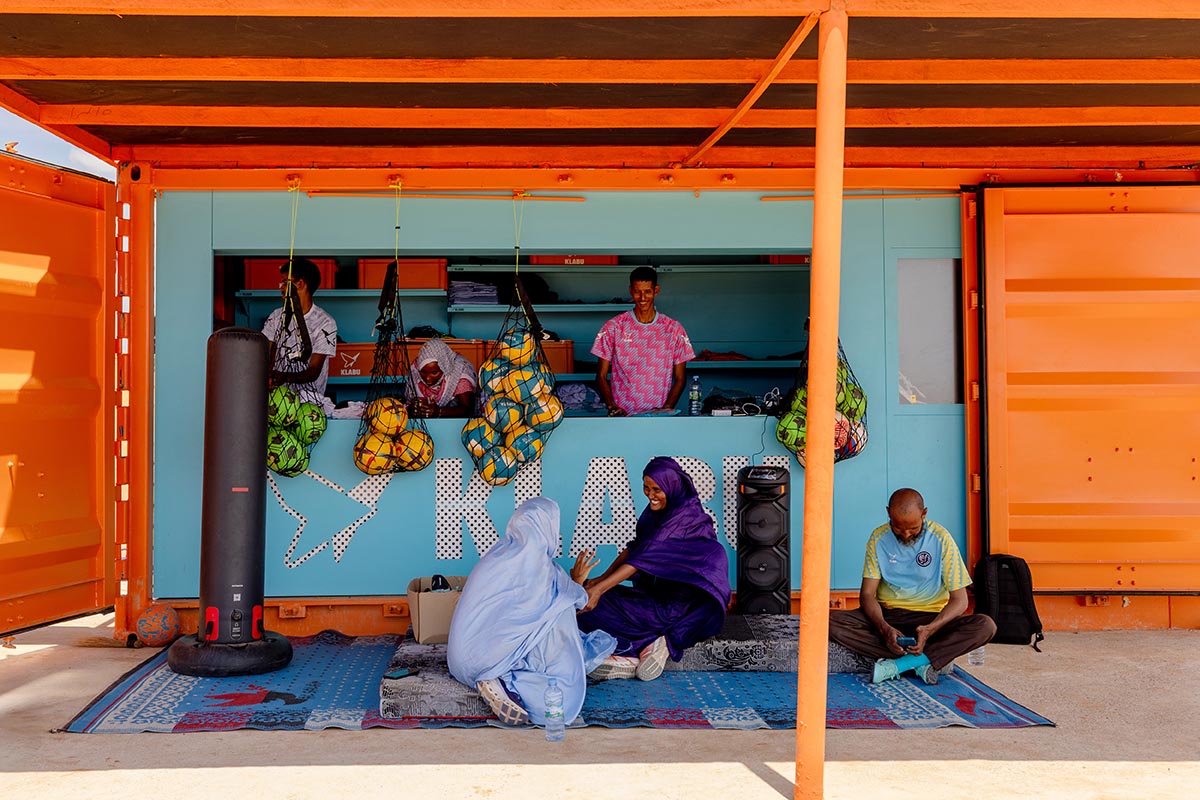
Because they provide a lot of storage space, clubhouse managers can easily access all materials once they are mounted and ensure that they can be pre-loaded into the container before shipping. Durability and ease of customs transit have been taken into consideration when selecting interior fixtures.
The clubhouse's third design iteration features an "open side" container that opens along its longer, 20-foot side in addition to having doors at the end.
This delivers greater adaptability and visibility for the clubhouse, incorporating a substantial window open to the public, a canopy, and a large television screen, while ensuring that the overall structure maintains its necessarily robust and functional characteristics.
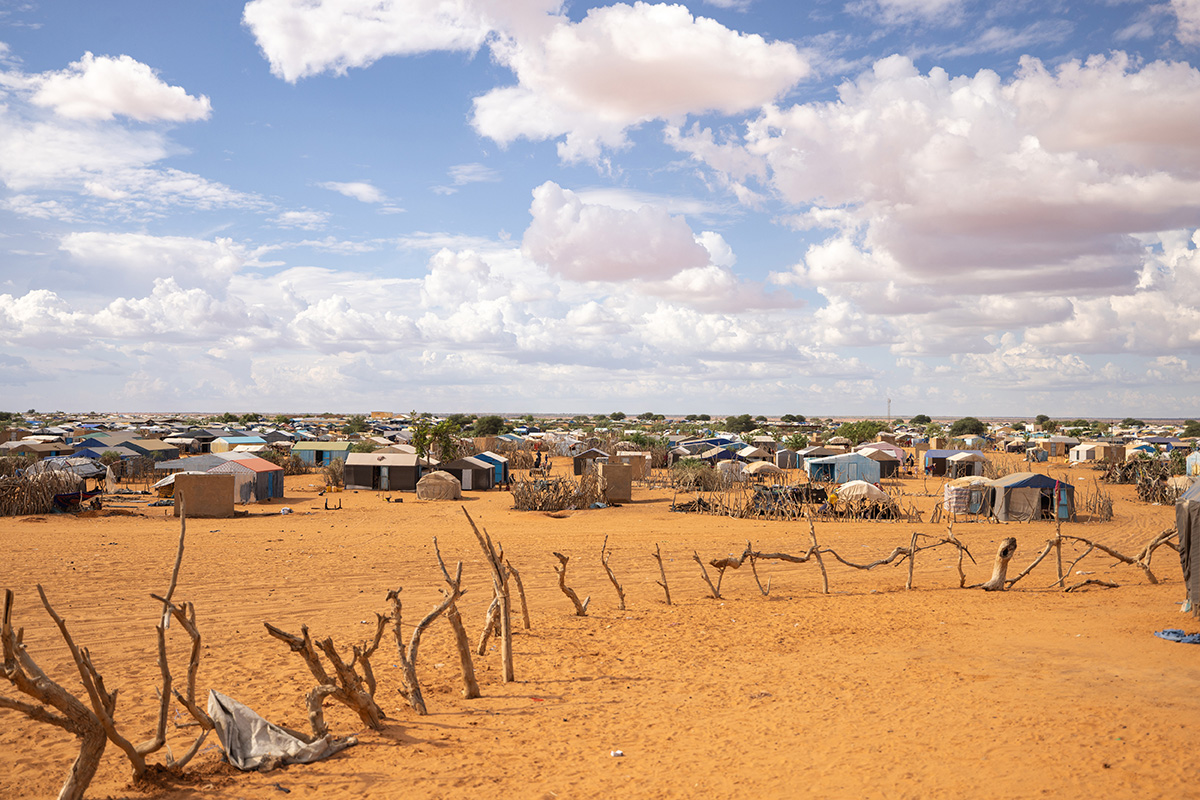
Because of the canopy's ability to provide shade throughout the day, the clubhouse can be used for a variety of other purposes, such as socializing and playing sports like table tennis.
The design makes it possible to install solar panels on the roof to provide renewable energy. Multiple electrical outlets, charging stations, and wireless internet capability are also included to support activities other than sports, such as education, in order to facilitate connections for mobile and portable devices.
The sturdy structure of the shipping container helps protect against the various climates found in refugee camps worldwide, and the design also takes into account the need for durability and flexibility in a variety of situations.
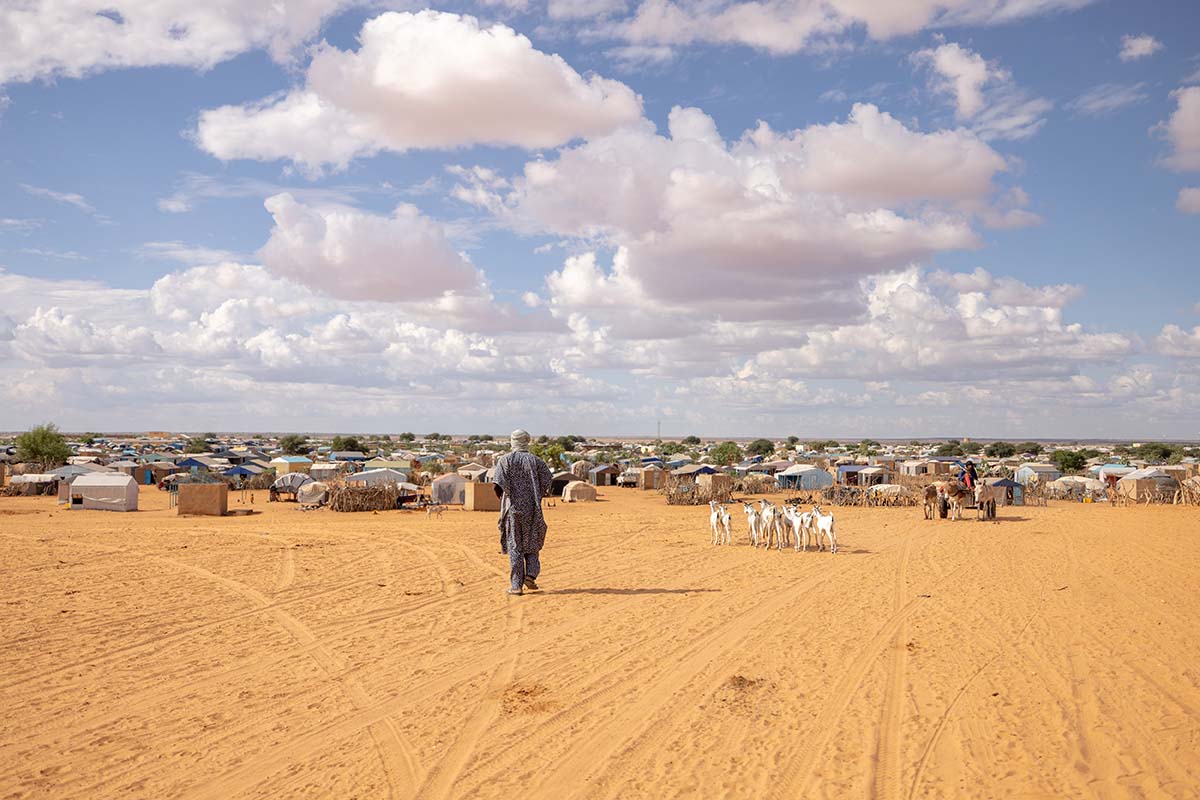
"Sometimes the most powerful design comes from the simplest concept. Taking a shipping container, ordinarily the most mundane, everyday object, and transforming it into a bright, multi-functional clubhouse providing sports opportunities for refugees has been a deeply rewarding challenge," said Gideon Maasland, director at MVRDV.
"For all of us at MVRDV, to have played a part in enhancing the meaningful impact KLABU has on vulnerable communities is humbling. We will continue to work with KLABU on new iterations of the clubhouse to help support the needs of refugees," Maasland added.
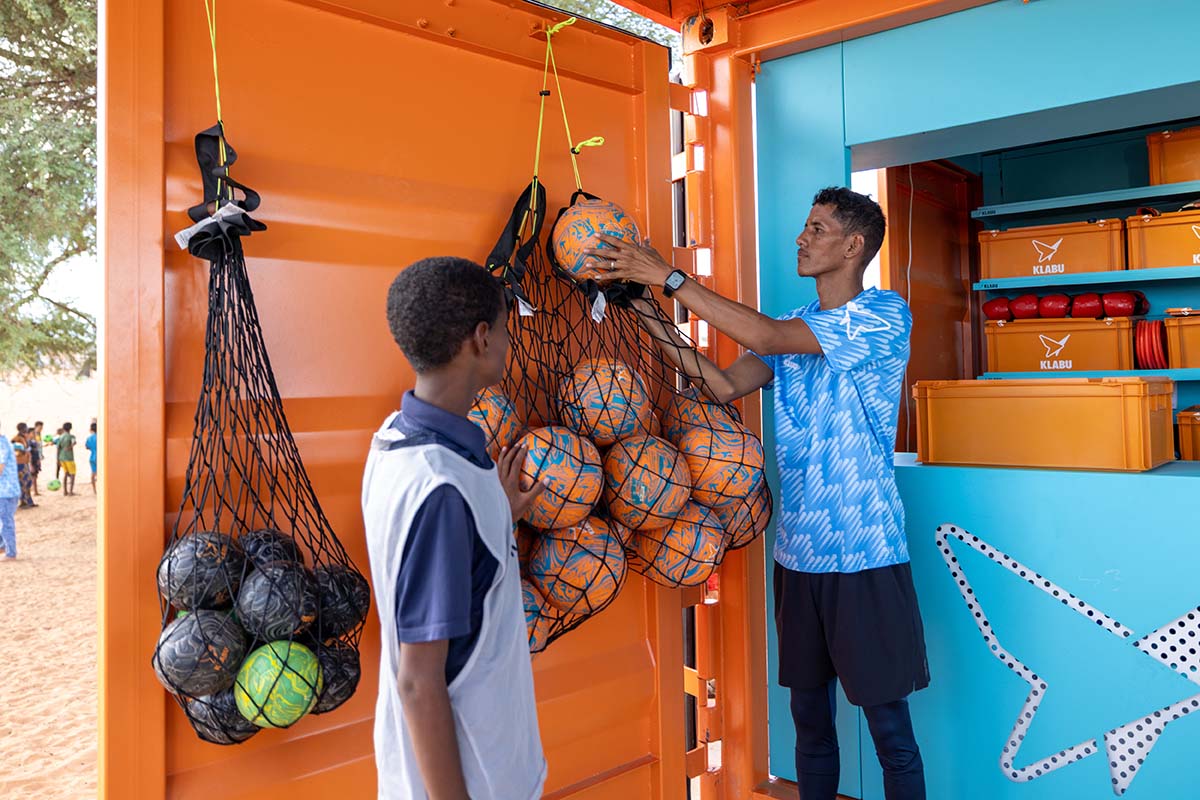
The involvement of MVRDV was centered on the project's requirement for adaptability and simplicity. The new clubhouse typology can be easily assembled, disassembled, and transported, which allows it to be used in a variety of settings.
The clubhouse's reach and impact can be expanded by easily deploying it to various refugee communities thanks to its inherent flexibility.
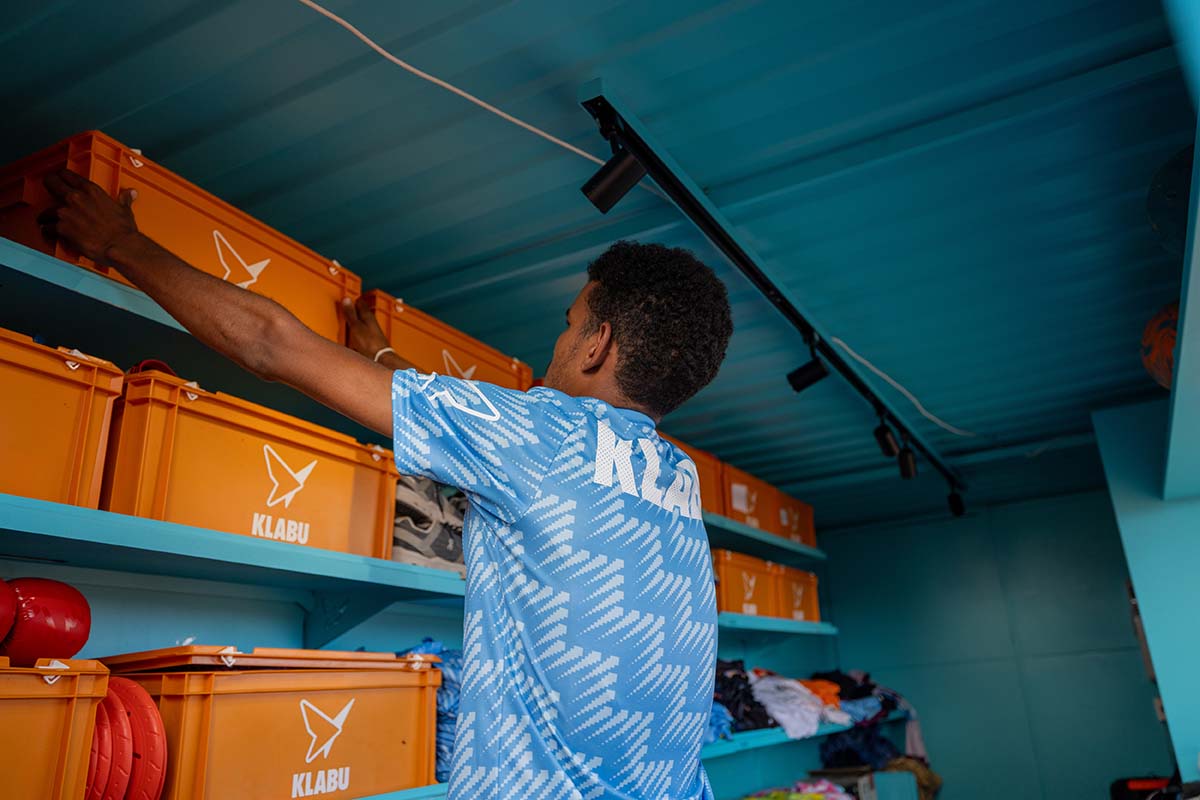
Within the next ten years, KLABU hopes to replicate this model in more than 50 locations, establishing a network of lively and safe areas where refugees can mingle, have fun, and prosper. More than 36,000 members have joined the clubhouses that have been set up in seven locations thus far.
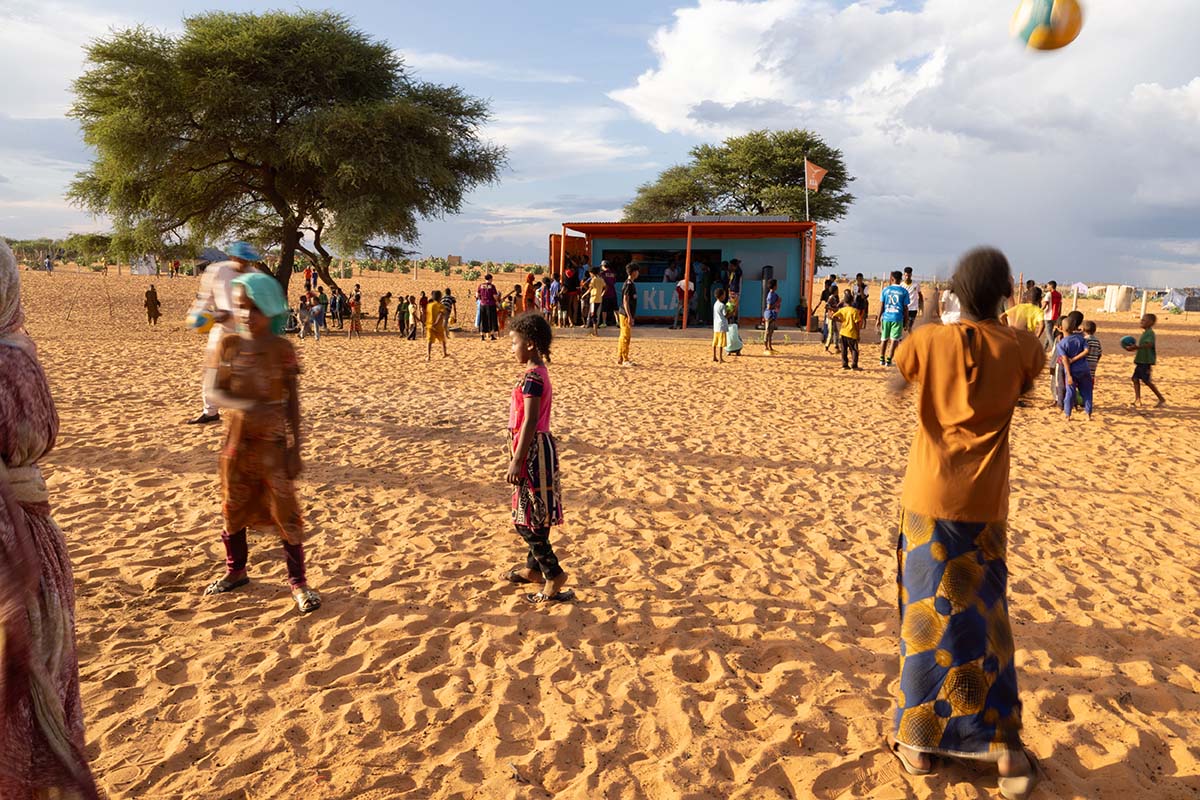
Thanks to the kind donations of many partners, including MVRDV, who have given freely of their time and resources to support KLABU's mission and are dedicated to promoting positive social change and enhancing the lives of marginalized communities, this ambitious project is now possible.
As part of its goal to become the largest sports club in the world, KLABU encourages people and businesses all over the world to join by buying sports kits, making teamwear for their own teams, and participating in KLABU workouts and other social events.

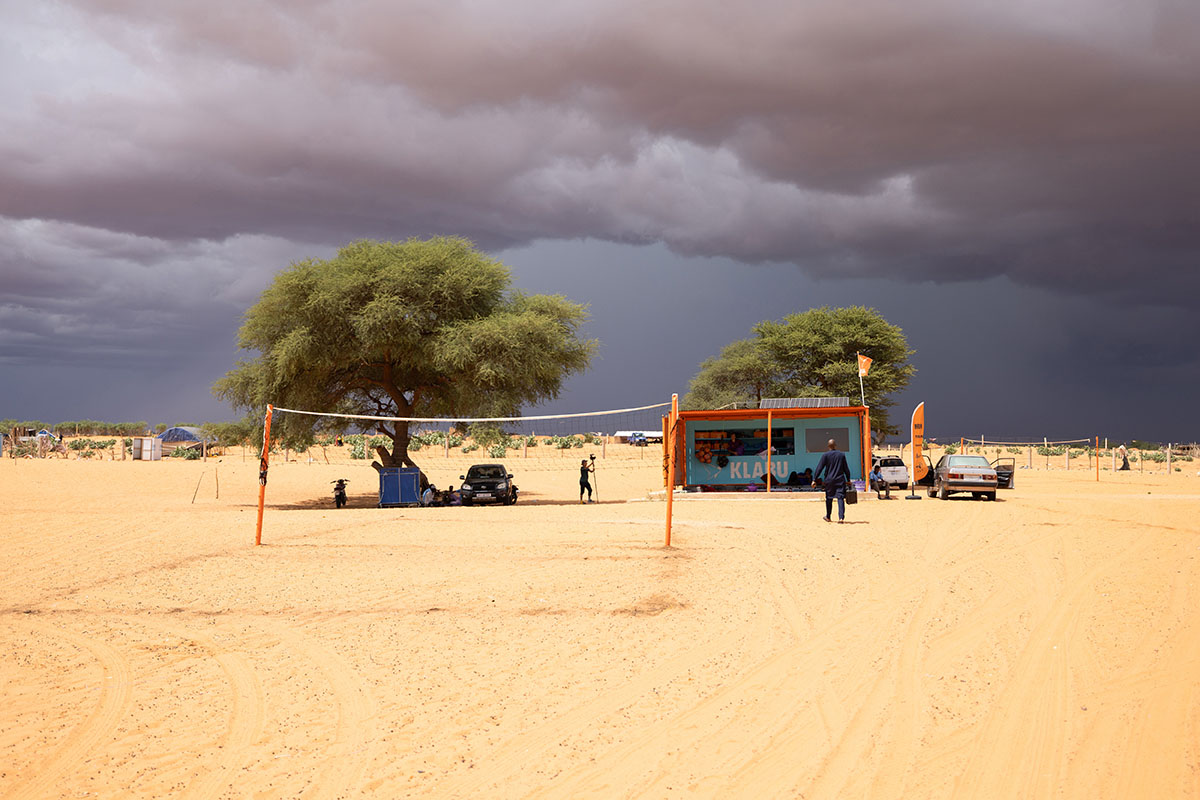
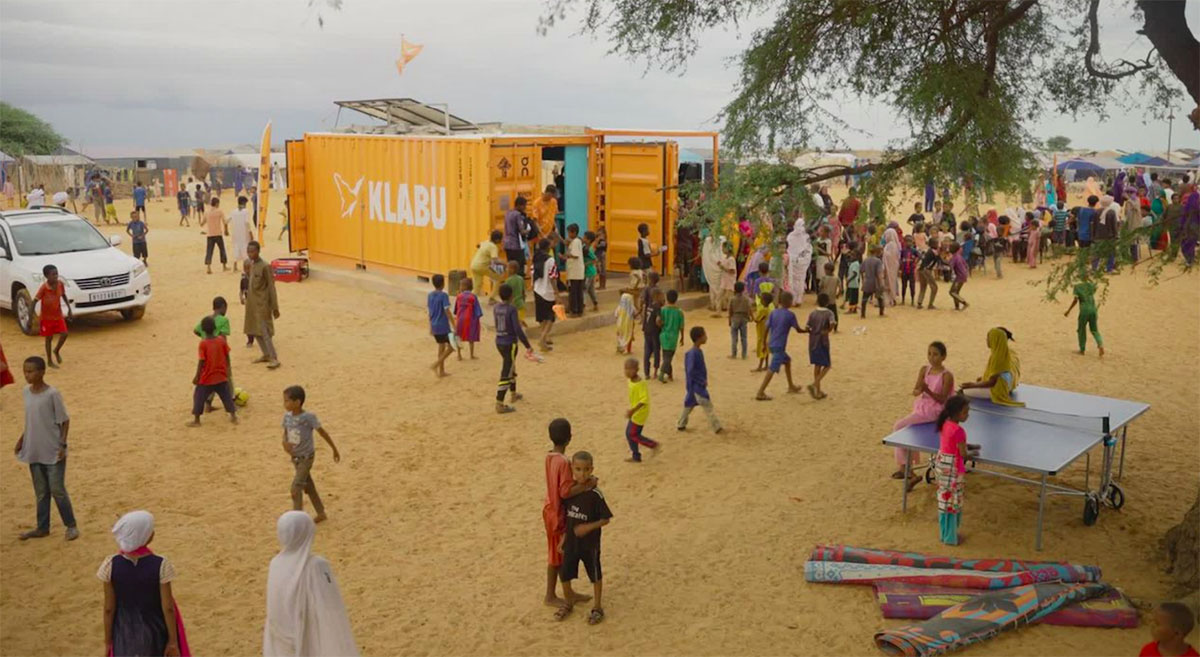
Image © Richard Hu
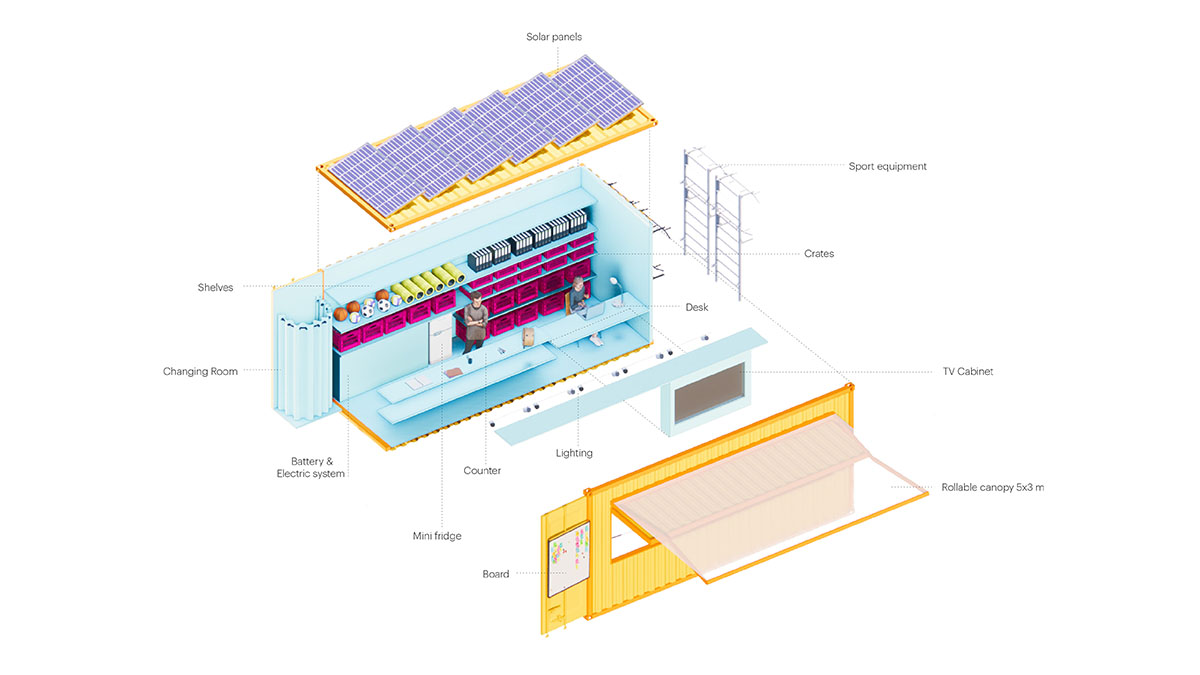
Clubhouse diagram
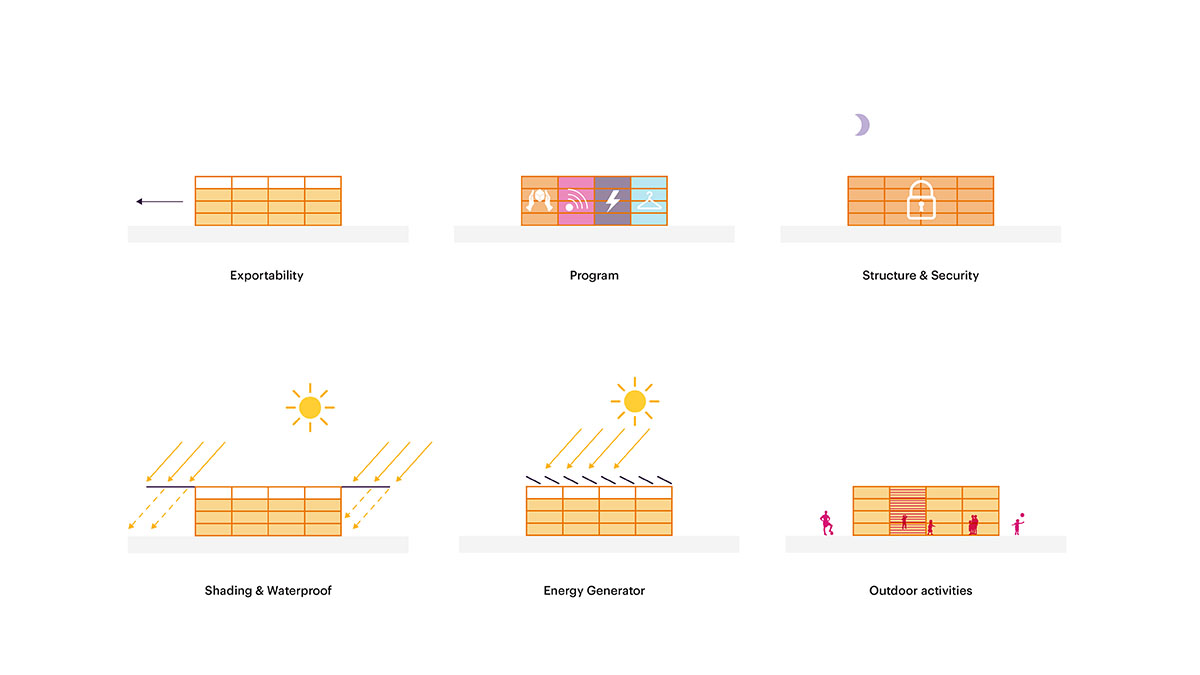
Clubhouse diagram
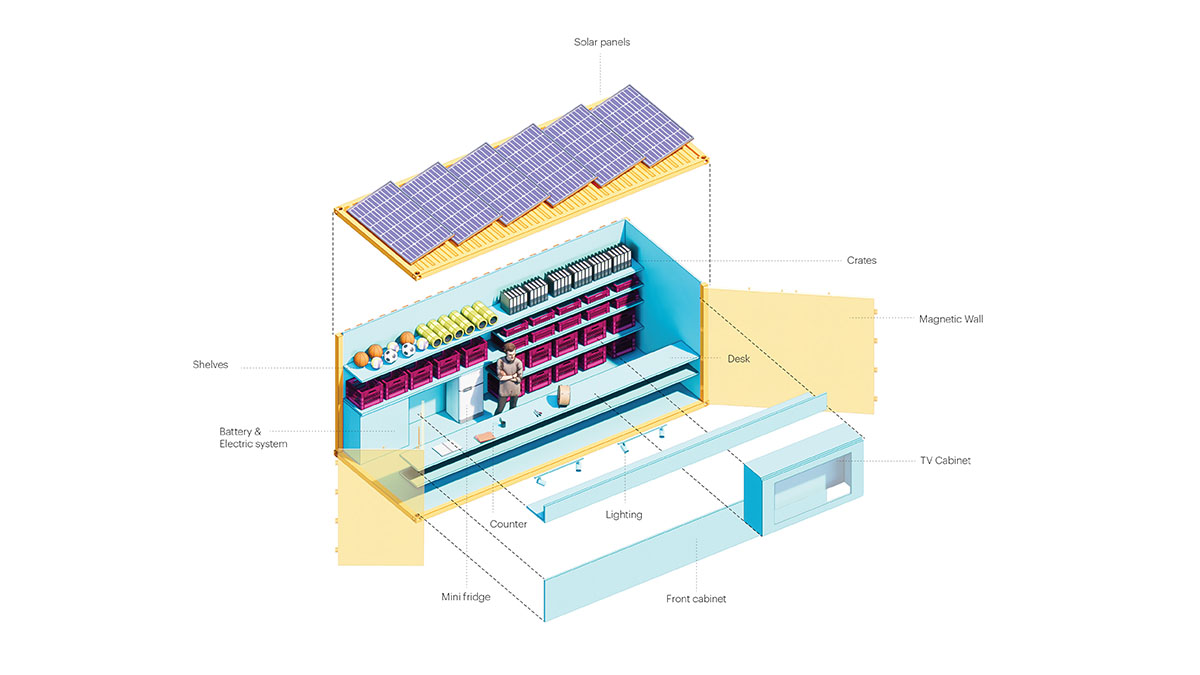
Clubhouse diagram
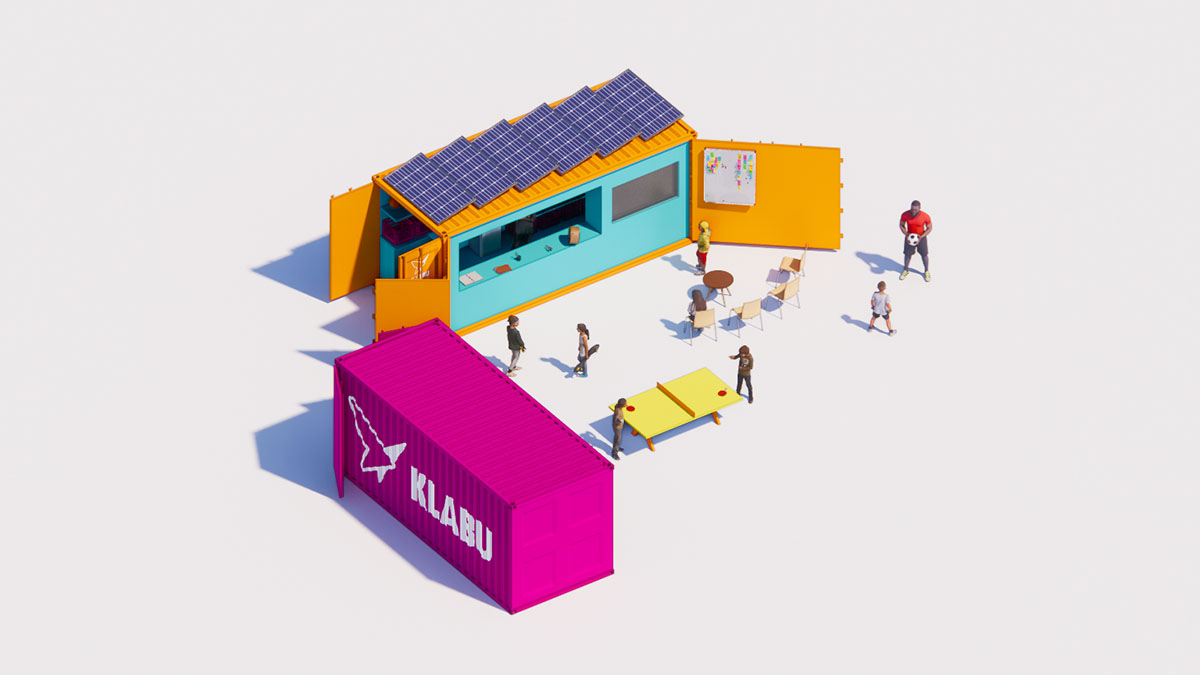
Clubhouse axonometric drawing
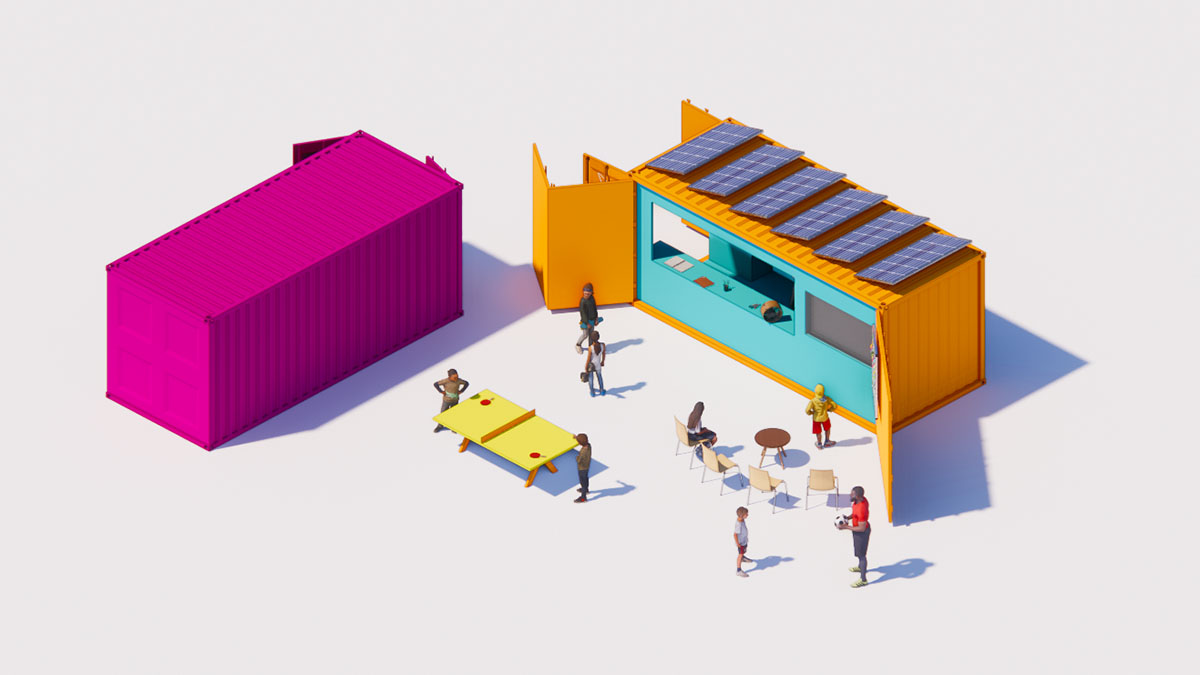
Clubhouse axonometric drawing
MVRDV, recently, completed the renovation and transformation of Dutch architect Aldo van Eyck's Tripolis Office complex in Amsterdam. In addition, the firm revealed the design for a new office building in Munich, the building's facade is covered in recycled plastic shingles. Moreover, the firm transformed a former German military base from the Second World War into a residential and cultural community.
Project facts
Project name: KLABU Clubhouse
Architects: MVRDV
Location: multiple locations around the world: Ter Apel, Netherlands; Boa Vista, Brazil; M’bera, Mauritania; Azraq, Jordan
Year: 2022 - ongoing
Client: KLABU
Size and Programme: 14 m2, sports facilities and gathering spaces (storage, lockers, ping pong table, TV screen, shaded spaces)
Partner: Stefan de Koning
Director: Gideon Maasland
Design Team: Valentina Chiappa Nunez, Jose Manuel Garcia Garcia, Herman Gaarman
Strategy and Development: Sruti Thakrar
Partners
Contractor: Loods121, TCHAI
Sponsors: Nike, Philips, Signify
All images © Coco Olakunle unless otherwise stated.
All drawings © MVRDV.
> via MVRDV
